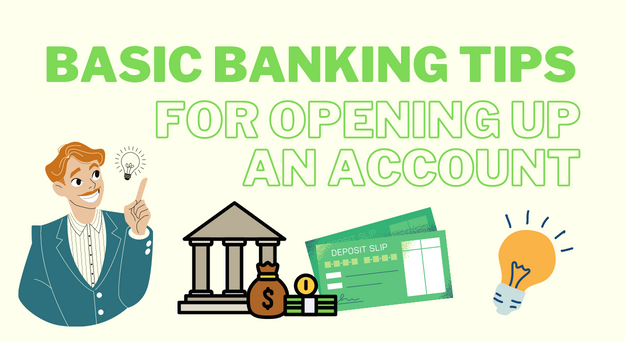Nothing is more worse than walking into the bank with the intention of opening up a bank account—either personal or for business—and not meeting their requirements. Every bank branch has their own set of requirements and knowing what they are is really important if you wish to do business with a certain bank.
Let’s take for instance, Navy Federal Union. You walk into your local Navy Federal Union branch and tell the teller you wish to open up a business bank account for your newly created LLC. To be eligible to open up a bank account with Navy Federal Union, you have to either have served in the military or in the federal union, know a family member who has served in the military or federal union, or live with someone who served in the military and they can ‘sponsor you’ (that way). If neither of these apply to you, you’re not eligible to open up a business bank account. In addition, Navy Federal Union requires their customers to open up a personal bank account first, then their business bank account can be opened up.
We’re going to share with you our tips and share some basics on opening a bank account with banks, no matter which branch.
Tip #1: Call The Bank & Establish a Relationship with a Banker
It’s always wise to call the banks before you open up an account and tell that which type of account you wish to open up (personal, business or a trust bank account) and they will direct you what documents you need to bring with you to open up the bank account.
Often times, you can ask the relationship banker for their email address (Chase and TD Bank are common for doing this) and you’ll be able to email them the documents you plan on bringing with you to open up the bank account. This allows the banker to review the documents you intend on bringing with you the day you open up the bank account, telling you what needs editing, what is correct or what’s missing. This is a really good benefit and something intelligent to do before walking into any bank branch to open up a business bank account.
Tip #2: Work With The Bank You’re Currently Banked With
If you are looking to get a loan, it’s a wise idea to start with the bank that you have been banking with for years as this can help boost your chances of getting approved for a loan.
It’s also smart to purchase any personal products the bank has to offer for you such as their credit cards.
It’s also wise to get a loan from a bank that you’ve been banking with for a while now.
Tip #3: Gather the Required Documents
When opening a bank account, you’ll typically need to provide some personal information and identification documents such as a passport, driver’s license, or ID card. Be sure to bring these documents with you to the bank.
Tip #4: Be Prepared for a Credit Check:
When opening a bank account, the bank may perform a credit check. Be prepared to answer questions about your credit history and provide information about your income and employment.
Tip #5: Understand the fees
Different types of bank accounts come with different fees. Make sure you understand the fees associated with the account you’re opening and how they may be waived.
Tip #6: Ask Questions
Don’t be afraid to ask questions when opening a bank account. Ask about the bank’s policies, fees, and any other concerns you may have.
Tip #7: Set Up Online Banking
Most banks offer online banking services that allow you to manage your account from anywhere. Be sure to set up online banking and download the bank’s mobile app to access your account on-the-go.
Tip #8: Read the terms and conditions
Before signing any agreements or contracts, be sure to read the terms and conditions carefully. Make sure you understand the fees, policies, and any other important information.
Tip #9: Deposit Money
Once your account is open, you’ll need to deposit money to start using it. You can do this by transferring money from another account, depositing cash, or setting up direct deposit.
Tip #10: Keep track of your account
It’s important to keep track of your account balance and transactions to avoid overdraft fees and other charges. Check your account regularly and reconcile your transactions to make sure everything is accurate.
List of banks to consider:
- Credit Unions
- Navy Federal Union
- PenFed
- Chase
- Truist
We’re open to hearing your suggestions! If you had any success or personal tips you’d like to share, feel free to share it in the comments below.








Leave A Comment